- Back to Home »
- Huge generational divide on Cuba
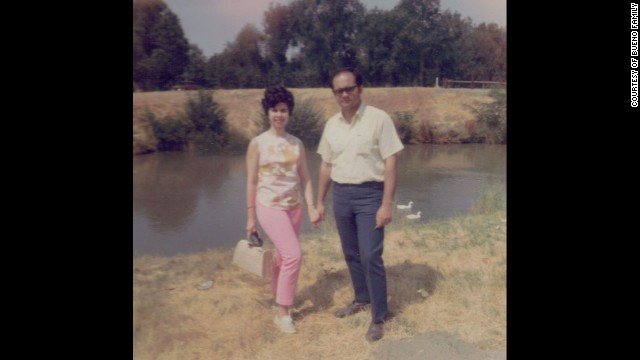 Cuban natives Estela and Arturo Bueno met and married after they were brought to the United States as teens by Operation Pedro Pan, a U.S.-sponsored move used by parents who feared what communism would do to their children. Here, the Buenos are shown in Los Angeles in 1969 when they were dating. They now oppose any U.S. ties with Cuba.
Cuban natives Estela and Arturo Bueno met and married after they were brought to the United States as teens by Operation Pedro Pan, a U.S.-sponsored move used by parents who feared what communism would do to their children. Here, the Buenos are shown in Los Angeles in 1969 when they were dating. They now oppose any U.S. ties with Cuba. 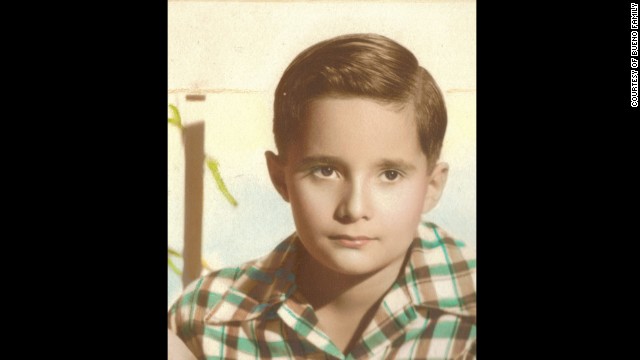 Arturo Bueno, 8 years old in Camagüey, Cuba, in 1953. Now 69, he arrived in the United States at age 16 as part of Operation Pedro Pan, which airlifted 14,000 unaccompanied Cuban children from the communist isle.
Arturo Bueno, 8 years old in Camagüey, Cuba, in 1953. Now 69, he arrived in the United States at age 16 as part of Operation Pedro Pan, which airlifted 14,000 unaccompanied Cuban children from the communist isle. 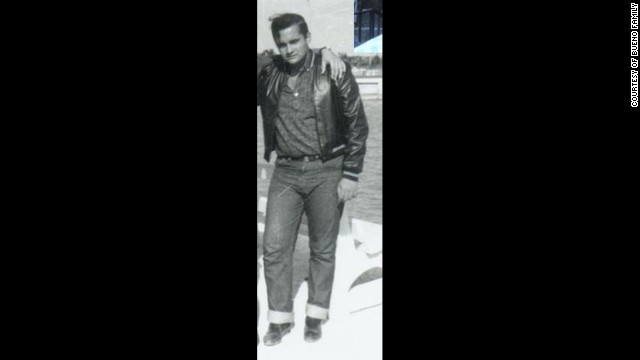 Arturo Bueno in Miami in 1961. He was 16 years old.
Arturo Bueno in Miami in 1961. He was 16 years old. 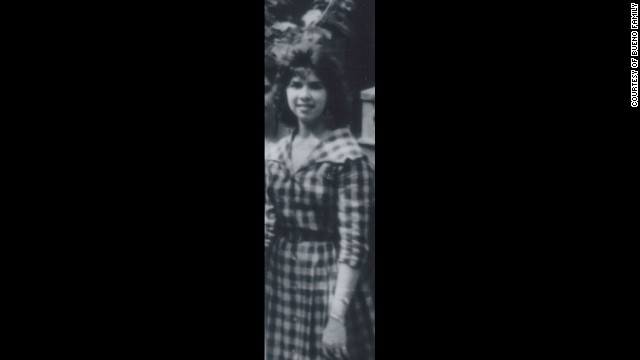 Estela Bueno in Camagüey, Cuba, in 1960, when she was 14. It was a year after Fidel Castro successfully led a revolution on the island. Operation Pedro Pan brought her to the United States when she was 15.
Estela Bueno in Camagüey, Cuba, in 1960, when she was 14. It was a year after Fidel Castro successfully led a revolution on the island. Operation Pedro Pan brought her to the United States when she was 15. 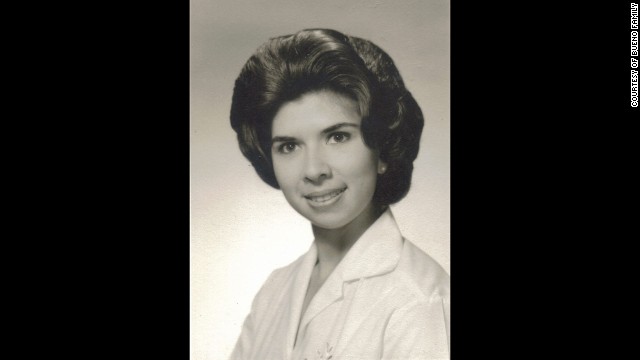 Estela Bueno at Belmont High School in Los Angeles in 1964, when she was 18 years old.
Estela Bueno at Belmont High School in Los Angeles in 1964, when she was 18 years old. 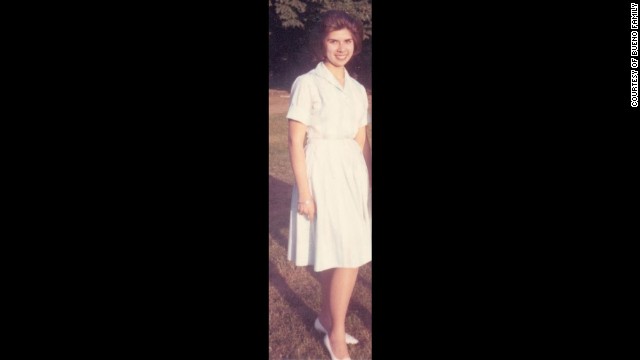 Estela Bueno in Los Angeles, at 18 years old in 1964.
Estela Bueno in Los Angeles, at 18 years old in 1964. 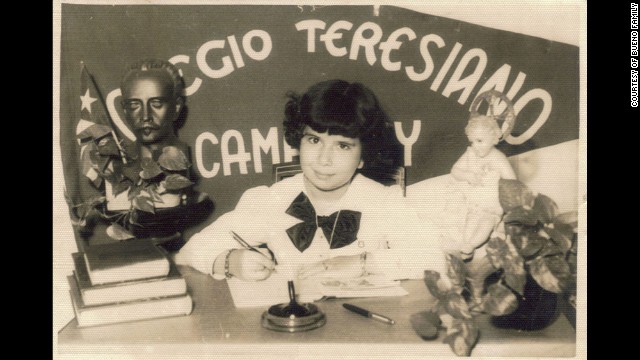 Estela Bueno in Camagüey, Cuba, taken at Colegio Teresiano in 1952, before Fidel Casto's successful 1959 revolution.
Estela Bueno in Camagüey, Cuba, taken at Colegio Teresiano in 1952, before Fidel Casto's successful 1959 revolution. 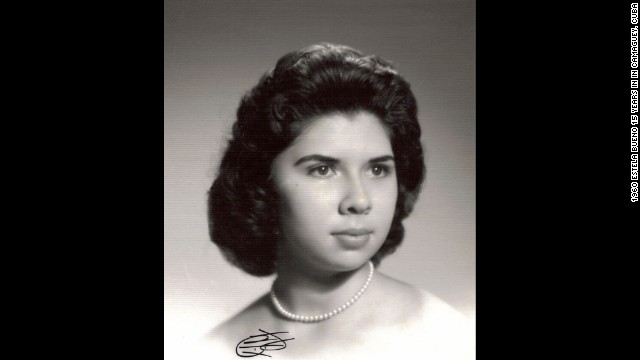 Estela Bueno in Camagüey, Cuba, in 1960.
Estela Bueno in Camagüey, Cuba, in 1960. - Differences between new, older generations shape politics behind historic change
- Raul Moas, 26, finds painful silence from relatives when he tells them of visiting Cuba
- Cuban-American exile, 68, says "the new generation did not suffer what we did"
- "There is a tremendous generational divide," pollster says of latest survey
(CNN) -- When Raul Moas took his first trip to Cuba, he plunged deep in the generational chasm among Cuban-Americans that now shapes much of the politics behind this month's historic renewal of U.S.-Cuba ties.
Born and raised in Miami, 26-year-old Moas discovered his trip to the ancestral land in 2011 is still a taboo among his parents and grandparents forced to flee the island during a communist revolution in the 1960s.
That generation made a blood pact to never return to the isle as long as brothers Fidel and Raul Castro continued their communist rule. It's amounted to 55 years and counting.
So when Moas later told his family of his visit to Cuba, many relatives stood in stone silence.
"When I came back and had the discussion -- 'Hey, surprise, I went to Cuba!' -- my maternal grandmother was happy, but many others of my family were much more tempered and said thank you and they walked out of the room," Moas recounted.
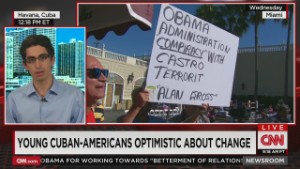 Young Cuban-Americans React
Young Cuban-Americans React "Even within my own family, there's conflicting tension. That's a microcosm of what the Cuban-American community is going through," Moas said.
For decades, Cuban-Americans were a near monolithic voice in condemning the Castro regime and energizing American policies that punished and isolated Cuba.
Now, a half century later, the grandchildren and children of those exiles who lost everything to the communist revolution are being credited with infusing the Cuban-American community with new viewpoints -- ones that would have been crushed by community leaders a generation ago.
A divided community
In fact, Cuban-Americans are now a divided people and are evenly split nationwide about President Barack Obama's announcement to normalize relations with Cuba, according to a new poll by the Miami Herald, Tampa Bay Times and the polling firm Bendixen & Amandi International.
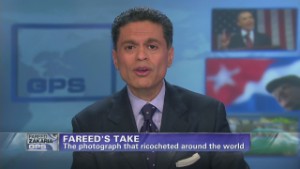 Fareed's Take: The Obama-Castro handshake
Fareed's Take: The Obama-Castro handshake The gap is evident by how nearly twice as many U.S.-born Cuban-Americans agree with Obama than those Cuban-Americans born in Cuba, according to the poll, taken immediately after Obama's announcement.
In effect, there are now two Cuban-American communities, said Fernand Amandi, managing partner of the polling firm.
The poll found how 67% of those aged 65 and older disagree with Obama's normalizing of relations, but 52% of Cuban-Americans under age 65 support it.
"There is a tremendous generational divide," said Amandi, who's been polling the community for 30 years.
Past attacks on dissent
It wasn't too long ago when the community solidly supported U.S. sanctions against Cuba, for better or worse.
In fact, condemnation of any contact with Cuba was once so strong that Americas Watch expressed alarm in a 1992 report and documented a litany of "attacks on freedom of expression in Miami's Cuban exile community." Those attacks targeted dissent from the hard line against the Castros-led Cuba.
The arrival of a new generation or two has opened the community to different views about U.S. policy.
"For some time now, the polls have been telling us that recent arrivals from Cuba -- those who have arrived since 1990 -- and those who were born and raised in the United States, have favored the normalization of diplomatic and trade relations with Cuba," said Maria Cristina Garcia, an American studies professor at Cornell University.
"In turn, those who lived through the most traumatic years of the Cuban revolution are understandably more angry about the new developments. The passage of time has not healed all wounds and memories," Garcia said. "I think any person who has experienced trauma can understand why this older generation view the announcement as a type of betrayal."
Many in the younger generation in south Florida are ready for a change.
"I represent a generation of Cubans who are very interested in the future of Cuba. We think that the best days for Cuba have yet to come. And we think that in the end, the Cuban people need to stop being pieces in a game of chess," George Davila said.
An older generation betrayed
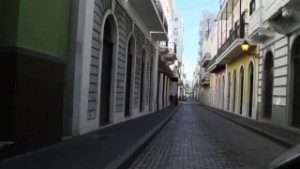 Grab your bags, get ready for Cuba!
Grab your bags, get ready for Cuba! Even in the unofficial Cuban-American capital of Miami, a slight majority now opposes continuing the U.S. embargo of Cuba, and a large majority favors diplomatic relations and the lifting of U.S. travel restrictions to the island, according to a 2014 poll by Florida International University.
Younger Cuban-Americans support those changes in larger numbers than the older generations, the study said.
Against that backdrop of changing opinions, Obama and Cuban President Raul Castro announced plans this month to exchange embassies and renew diplomatic ties for the first time since 1961.
Obama also will ease parts of the U.S. embargo against Cuba. The two countries swapped prisoners in December.
Though historic, the changes hardly soothe the deep psychic scars carried by many senior Cuban-Americans.
Among those most traumatized by the Cuban revolution were the 14,000 unaccompanied Cuban children airlifted to the United States in a U.S.-sponsored operation called Pedro Pan, a reference to Peter Pan. Parents sent their children to U.S. soil out of fear that communism would usurp parental authority.
Many children were later reunited with their parents in America, but others ended up in the care of Catholic churches, orphanages, foster homes and delinquency facilities.
"They don't know the Cuba I know"
One of those children, Estela Bueno, now 68, called Obama's normalizing of relations with Cuba as "one of the saddest days in my life."
"To see my government that is the United States would do such a thing, it does not value what they say about freedom of expression and the human rights," said Bueno, who was 15 when Operation Pedro Pan brought her to America.
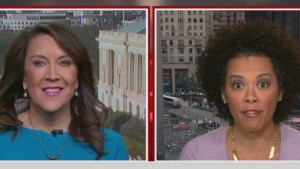 Battle looms over Cuba in Washington
Battle looms over Cuba in Washington "The new generation did not suffer what we did, they did not see what we did," Bueno said. "They don't know how the Castros are.... It's an oppression, and the new generations don't know that and they don't know the Cuba I know, and for them it's different and for them it's an advancement, but it doesn't compare what we saw."
Her husband, Arturo, 69, also arrived to the United States as one of the Pedro Pans, at age 16. The couple, who met in college, lives in Torrance, California.
Obama's announcement was "an insult and a betrayal," including to those Cubans who perished in the shark-infested Straits of Florida on rafts and unseaworthy boats while fleeing the island, he said.
"It surprised me completely," Arturo Bueno said. "It's a betrayal to the memory of many Cubans who have died and who have died in the ocean or that they've killed just because they didn't agree with the communist government.
"I always thought that sooner or later we would have an agreement, between the U.S. government and Cuba, but not a government under the Castro brothers," he added.
Presidential politics
The rift provides a political climate for Obama to pursue the bold change, particularly in the nation's third most populous state of Florida, where Cuban-Americans are a powerful influence on presidential races, typically in favor of Republicans, analysts say.
But even that is changing, too.
"President Obama won Cubans in South Florida last cycle in 2012 narrowly, but he did. So there's a big generational divide in that community. And that's one of the reasons I think he feels he can make this calculation without screwing Democrats in Florida going forward," said John Avlon, a political analyst and editor-in-chief of the Daily Beast.
Seeing pain, but sensing opportunity
Like other young Cuban-Americans with parents from the island, Felice Gorordo of Miami treads lightly when talking about Cuba with older relatives.
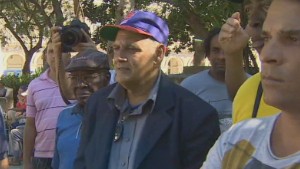 Cubans react to historic policy shift
Cubans react to historic policy shift Visiting Cuba is even a more perilous subject.
Gorordo's father left Cuba in 1961 as one of the Pedro Pans. Gorordo's mother left Cuba in the 1970s as a teenager.
In 2002, Gorordo, then 19, decided to visit Cuba and see the relatives his parents left behind.
"My grandparents were very against it and so were my parents," said Gorordo, now 31, who runs a startup firm providing tax filing services to immigrants.
"You have to recognize there is a lot of pain in this community, and it's real and you can't deny it or cover it up," Gorordo added. "But at the same, there's a sentiment among younger Cuban-Americans and even the older ones that this might be an opportunity to bring about change that we hoped for in Cuba."
Seeking change
That sort of change ultimately calls for a democracy in now communist Cuba. It's a vision that Fidel and Raul Castro certainly don't share or won't allow.
That doesn't deter Gorordo and his generation.
Gorordo, Moas and a network of 5,000 U.S. students at 50 universities seek change in Cuba by giving their island-based contemporaries a lode of technology.
They send laptops, flash drives, tablets and phones so that Cubans can better their lives and amplify their voices in "the Western Hemisphere's last dictatorship," according to the website for the U.S. student group called Roots of Hope, or Raices de Esperanza, based in Miami Beach, Florida. Moas is executive director, and Gorordo a co-founder.
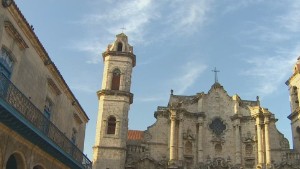 Winners and losers in new Cuba relations
Winners and losers in new Cuba relations The group's donations align with how Obama is now allowing the export of more U.S. telecommunications and Internet equipment to Cuba, where only 5% of the population enjoys unfiltered access to the web.
Revolutionary's descendant uses baseball
One member of the group, Cuban-American Luke Salas sought change by trying to become the first American to play baseball in Cuban pro leagues since 1961.
Salas, 30, declined to state how his 2011-2012 quest in Cuba ended, but he's made a yet unreleased film, "Cuban Dream," about it.
"It got political as you can imagine," Salas said. "The State Department called me and questioned my motives and threatened to put me in jail if I kept going down there and played baseball. The Cuban side didn't know what to make of me.
"For me, there's no greater platform for Cubans and Americans to come together than baseball because it's a common love and national pastime."
Salas' great-great uncle, Cesar Salas, was a right-hand man to Cuban national hero Jose Marti, a revolutionary who led the independence movement of the late 1800s.
By 1960, however, Luke Salas's grandparents and father fled the island for the United States.
It can be a painful topic for them.
"Of course, I understand my 94-year-old grandmother crying, and it's not her homeland any more," said Salas, who was born and raised in Los Angeles.
"This younger generation, the millennials, we are more in a position to see hope and we can see a younger generation in Cuba that needs help," he said.
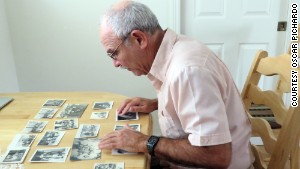
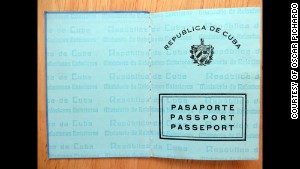
Nothing will change
Older generation Cuban-Americans such as Oscar Pichardo, 63, of Redondo Beach, California, call Obama's diplomatic and trade initiative with Cuba "a major insult and a slap in the face," he said.
Pichardo recalled how parents sent him and others to the United States when the Castro regime sought to conscript youngsters in the military.
"My parents left everything behind, absolutely everything," said Pichardo, who reunited with his parents in the United States a year after he was airlifted during Operation Pedro Pan.
With his long view of Cuba, Pichardo contends that, in the end, Obama's measures won't change a thing in Cuba.
He pointed to how nothing changed on the island after the late Pope John Paul II visited the island in 1998 at the invitation of then-President Fidel Castro, now 88.
The Pope publicly urged freedom there in what was the first papal visit in Cuban history.
"I think in five years we will be here and we are going to look at this day and say nothing has changed," Pichardo said. "Remember, the same promises that (Raul) Castro is telling Obama, (Fidel Castro) said 15 to 20 years ago to the Pope, and nothing changed in the 20 years since the Pope went to Cuba.
"So history is repeating itself," Pichardo asserted.







